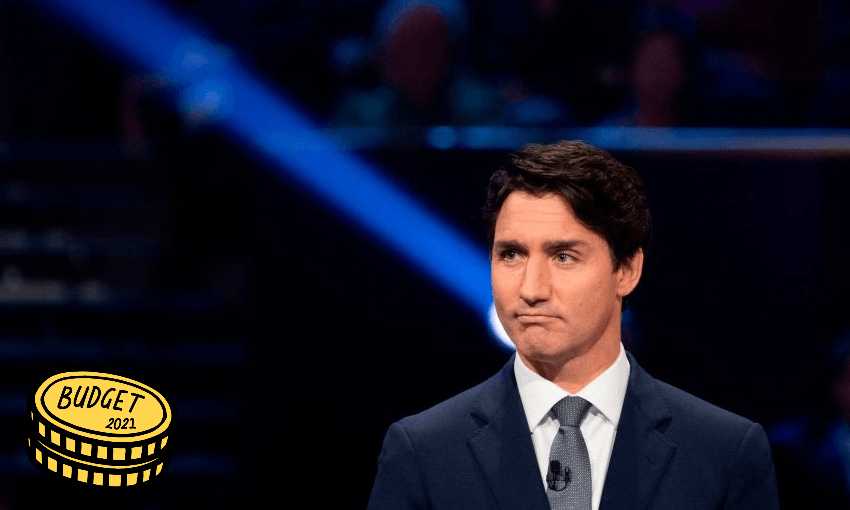The first budget in decades from a Labour majority government will be unveiled on Thursday and all signs point to restrained spending. Council of Trade Unions economist Craig Renney dreams big and considers what a transformative budget would look like. Luckily, one already exists.
Picture this.
The finance minister (and deputy prime minister) stands up in the house and delivers a budget that truly seizes on growing international calls to “build back better”. It’s a budget aimed at long-standing issues facing the country and squarely addresses them.
The minister acknowledges that the Covid-19 recovery runs the risk of leaving some groups of people behind and provides funding to address their problems. The opposition is left flat-footed and focuses on the amount of spending, rather than the people who need it and who will benefit.
The minister, standing in the house, is in command of their portfolio and in command of the real issues.
Using wellbeing analysis, the budget doesn’t force groups to compete with one another for funding. Instead, it highlights the needs of the community and provides mechanisms to tackle their problems.
The budget provides significant support for programmes to address the historically unmet needs of some vulnerable communities, especially women. Life-changing amounts of money are invested to prevent family and sexual violence.
The government also extends income support, particularly to those who have recently lost their job. And the budget ensures unprecedented investments in delivering the greener economy that we all need. That includes targeted support to significantly boost social housing construction and to insulate properties for those on the lowest incomes.
To write that budget, the government agrees to work closely with unions to ensure that working people have better retirement savings. There is additional assistance for students who have had to study during some of the most difficult circumstances that anyone can remember. The minister also commits the government to better protect those working in the gig economy.
To pay for all this, the minister of finance says those who are the most able should contribute a little more. There will be an additional surcharge on luxury cars, boats and private aircraft. Overseas owners who leave their properties vacant will pay an annual 1% levy on the value of that property.
Digital service companies will now need to pay a small tax on their overall revenue until a multinational approach can be delivered.
Tax inspectors will be given additional resources to properly tackle tax avoidance and evasion, so that everyone is paying their fair share. Changes to transparency rules will help, so that the true owners of assets can be identified and complex tax avoidance schemes are cut through.
You don’t need to be day-dreaming to make this vision a reality. Instead, just pick up a copy of the 2021 Canadian budget, recently tabled by deputy prime minister and finance minister Chrystia Freeland.
The Canadian budget shows why these changes in spending are needed. It reveals that those with the lowest income in Canada have faced the highest rates of job loss during Covid-19.
The clearest demonstration of need is the $30 billion (all figures in Canadian dollars) being provided to make childcare more affordable. By 2026, childcare in Canada will cost $10 a day. It currently costs $1,500 a month in Toronto – about $70 a day. That number will be cut in half next year.
Back here in New Zealand, the debate surrounding budget 2021 has instead been about the government’s decision to balance spending needs with the need to maintain fiscal control. Deputy prime minister and finance minister Grant Robertson has vowed to tackle a non-existent debt crisis. That was used to justify a decision to restrain pay rises for much of the public workforce while property prices go through the roof and the banks make record profits.
The budget provides an opportunity for setting out a credible long-term plan for the Covid-19 recovery. Its focus should be on how to create a more productive, sustainable and inclusive economy.
There’s much to applaud in Robertson’s recent statement on the budget: “In our view, an investment-focused recovery that supports all New Zealanders is the way to ensure that our finances remain sustainable. It is also the way in which the government will continue to tackle the long-standing issues that we were elected to address.” Well said.
New Zealand’s budget will be released tomorrow and with it, the government risks falling behind other progressive governments around the world. The US is re-equipping its economy and has a task force led by vice president Kamala Harris to increase union membership. Even Australia’s government has chosen not to follow the path of austerity, prioritising getting people into jobs rather than chasing a surplus.
Budgets are about choices.
We made choices during Covid that saw the country come together and defeat the virus. We made choices at the election to spend money so that we could continue that fight. Thanks to our efforts we now have choices about what to do with the resources that victory has freed-up. Do we choose a K-shaped recovery where there is an increasing disparity in who is benefitting from growth? Or do we grasp that now is a once-in-a-generation opportunity to do the right thing and support all New Zealanders to live better lives?

